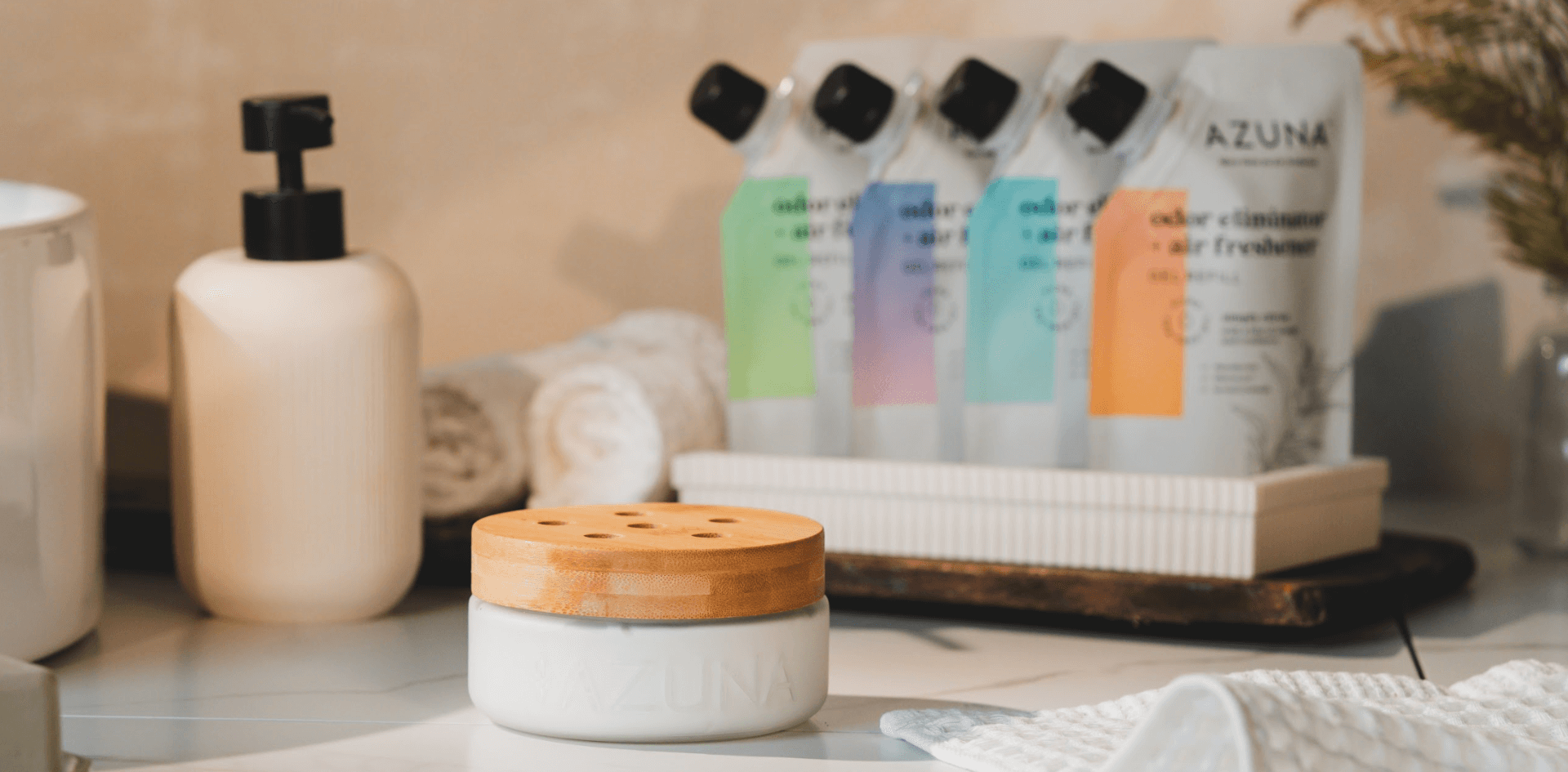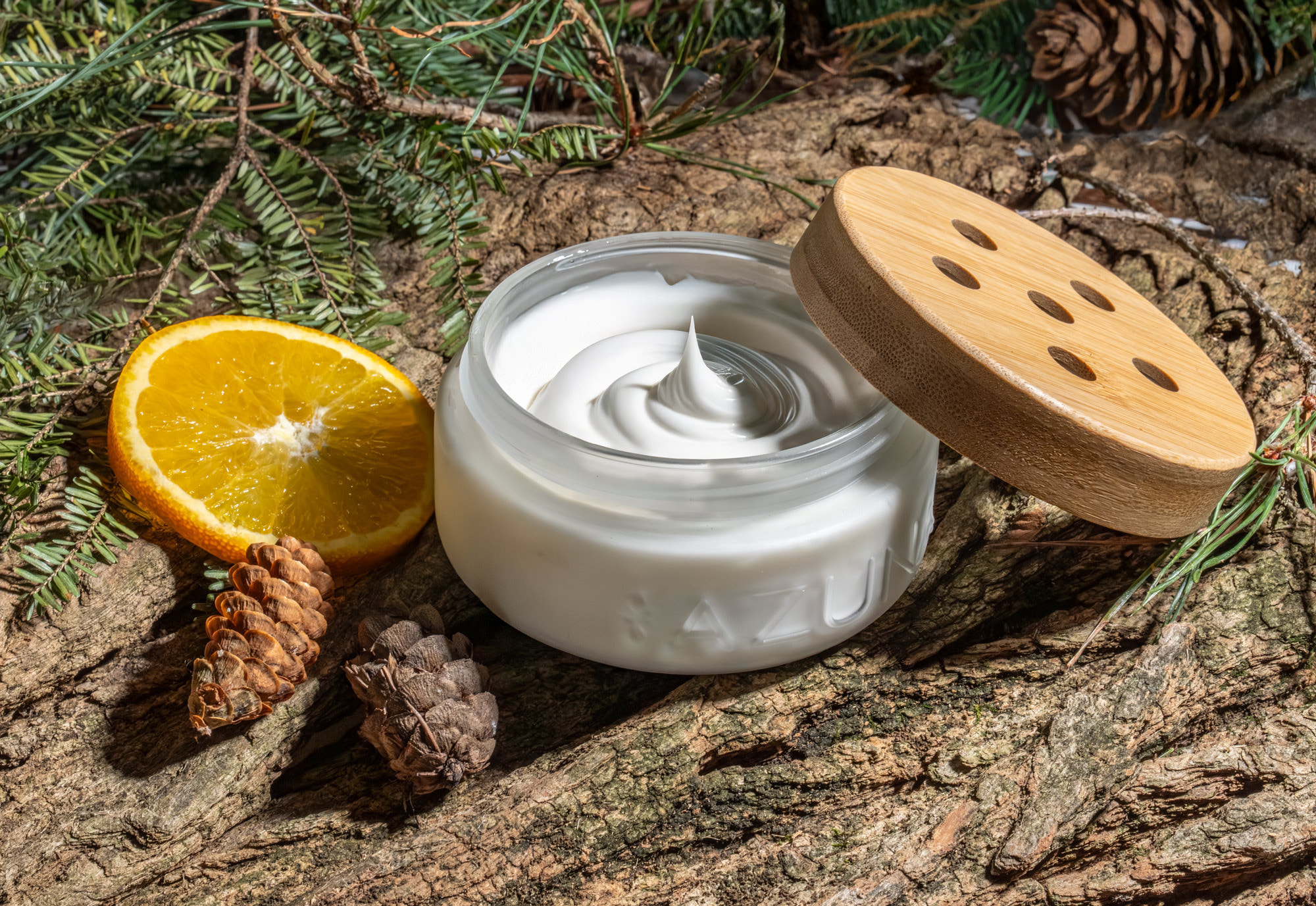Let’s get scientific. (Just for a minute.)
Americans are now spending more time at home than ever, hitting an average of 17 hours a day. And with our ability to detect up to one trillion distinct odors, we’re bound to notice when something smells off.
But clearing up your indoor air can feel overwhelming. The market is crowded with products that promise to clean your space and freshen the air—but not all of them are trustworthy. Many rely unpronounceable chemicals and heavy, artificial fragrances that only cloud the problem.
It’s why natural odor elimination matters, and why the most effective solutions are the ones that work continuously with your home’s airflow. But when it comes to freshening your indoor air, it helps to first understand why some unpleasant smells seem to just stick.
How We Perceive Odors
We’ll start at the beginning.
Every odor is a cluster of microscopic molecules. When inhaled, those molecules bind to receptors in your nose and send signals to your brain that identify the smell.
According to a National Institute of Health (NIH) study, different odors activate unique receptor combinations. And the more complex the odor, the more complex the response. That’s why scent is so personal; what smells strong or unpleasant to one person may go unnoticed by another.
Why Certain Odors Smell Stronger Than Others
That same variation in how we smell is found in what we smell, too. Three key factors determine how strong an odor is.
-
Volatility: how easily odor molecules disperse in the air.
-
Molecular size and structure: how composition affects movement; for instance, smaller molecules move faster and are often detected more quickly.
-
Receptor interaction: how molecules trigger your brain’s recognition of the smell.
When combined, these factors shape the entire sensory experience.
And the way they interact is why even closely-related smells can trigger such different responses. For instance, vanilla and body odor are chemically similar—but one is comforting, and the other will leave you reaching for a fix.
Types of Odor Control
Deodorization
Deodorization is an umbrella term that covers all kinds of odor removal, whether temporary or permanent. Because it’s such a broad definition, most air fresheners can say they deodorize, but not all of them actually eliminate unpleasant smells.
To determine whether a product will target odors at the source, look at its active ingredients. Natural odor eliminators like activated charcoal, tea tree oil, and baking soda are able to break down odor molecules and prevent smells from returning. Synthetic options—like plug-ins, aerosol sprays, or scented candles—are only capable of hiding unpleasant smells through chemical means.
Masking
We don’t do this. (You shouldn’t, either.)
Masking odors is the quickest but least effective fix. It works by covering up unpleasant smells with stronger, more favorable ones: think aerosol sprays or scented oil plug-ins. But since those products don’t address odors at the source, that original smell returns—now layered with heavy fragrances and strong chemicals.
And, when it comes to ingredients, a University of Texas study found that 25% of those in traditional air fresheners are classified as toxic. The NIH also links poor indoor air quality to increased headaches and respiratory problems.
Neutralizing
Here’s where we shine.
Odor neutralization eliminates smells at the source, either by chemically changing the structure of the odor molecule or through adsorption, where a neutralizer binds to the odor molecule and renders it odorless.
Think of neutralization as the gold standard for natural home odor elimination. It’s more effective, longer-lasting, and generally much safer for your space.
How Tea Tree Oil Eliminates Odors Naturally
Tea tree oil, extracted from the melaleuca plant, is known for its powerful antibacterial and antifungal properties. That makes it a natural fit for odor elimination, and it’s why it’s the foundation of every Azuna product.
Unlike masking agents, tea tree oil targets odors at the source. Its molecular structure breaks down odors from common culprits like mold, mildew, and bacteria, and prevents them from coming back.
Our plant-powered lineup—including our odor-eliminating gels, freshening sprays, and multi-surface cleaning wipes—uses pure Australian tea tree oil to eliminate household odors more simply, naturally, and effectively.
Why Natural Odor Eliminators Are The Best Choice
Most everyday household odors come from organic sources like bacteria (garbage, food waste) and fungi (bathroom mildew, airborne mold spores). Rather than masking smells with heavy perfumes and harsh chemicals, Azuna’s tea tree oil-based solutions work with your air, not against it.
The result is a cleaner-feeling, non-toxic environment that never compromises your indoor air quality. We’ve even paired some of our favorite products with hassle-free tips to clean more simply.
What’s in your air shouldn’t be a mystery. Shop Azuna today.







